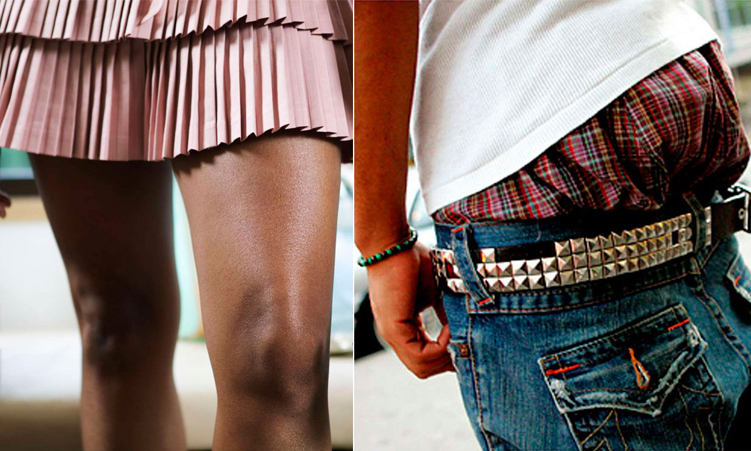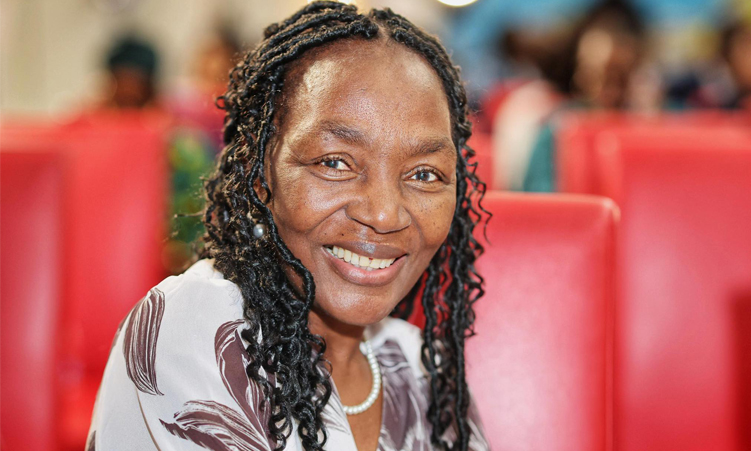The Faculty of Health Sciences and Veterinary Medicine at the University of Namibia (Unam) has prohibited all faculty students from wearing ripped jeans, miniskirts, “unreasonable” make-up and having long, “untidy” hair or dreadlocks.
This comes a few months after the International University of Management prohibited students from wearing crop tops and miniskirts at its Dorado campus.
An internal memo written by senior lecturers at the faculty to the vice chancellor of Unam’s Hage Geingob campus, says students should be neatly dressed and presentable.
The memo was authored by executive dean Judith Hall, associate dean of the School of Veterinary Medicine Anna Marais, associate dean of the School of Pharmacy Boni Singu, associate dean of the School of Nursing and Public Health Louise Pretorius, associate dean of the School of Medicine Felicia Christians, associate dean of the School of Dentistry John Rutabanzibwa, and associate dean of the School of Allied Health Sciences Cilas Wilders.
“We, the senior leadership of the faculty present this guideline to our students across all campuses, and we expect it to be adhered to. Unfortunately, there must be consequences with respect to the Student Disciplinary Code if this guidance is not adhered to,” the memo reads.
Part of the memo says students at the faculty must be clean, tidy, and presentable at all times.
“This guidance is not meant to allow you to be bullied. Females do not wear skirts or tops or other outfits that are too short or too revealing on campus or on placement. Both are professional environments where patients are present, and neither patients nor staff wish to see your flesh. “Males, who are known to wear ripped jeans on campus, should at all times refrain from wearing jeans with big holes, and certainly not when attending labs or going to hospitals or clinics. Students should not wear an excess of make-up, that is only for leisure occasions, wear sensible shoes,” the memo says.
It says students should present themselves as credible future members of a clinical profession.

‘REGRESSIVE’ POLICY
Landless People’s Movement youth leader Duminga Ndala says universities have resorted to the regressive practice of policing students’ physical appearance, thereby infringing on the principle of expression.
“While we understand the university’s need to uphold the principle of professionalism among students, a university should be a space for the contestation of ideas, not a space where students are policed on their physical appearance,” she says.
Meanwhile, Namibia Economic Freedom Fighters youth leader Theresia Mushaandja says the directive would only make sense if it is meant to mentor young students positively.
She says the prohibitions may not be fair for adult students, some of whom are employed or even married.
“While the students’ human rights are to be fully respected, guidance to the same is also necessary, especially to prevent them from finding themselves in situations where the pressure to fit into a certain lifestyle, clique or group may drive them to acquire things to feed such lifestyles,” Mushaandja says.
STUDENTS UNION UNIMPRESSED
Namibia National Students Organisation president Dorthea Nangolo says her organisation believes no student must be deprived of their right to self-expression.
She says institutions should, however, enforce rules applying to certain professions, especially regarding appearance and dress code, as long as they apply equally to both genders.
“However, this becomes a bit complicated during work practice, where they must adhere to rules that govern their appearance in work places,” she says.

‘NOTHING NEW’
Swapo Party Youth League spokesperson Moses Sikerete says these regulations are not unusual.
“First and foremost, we need to understand that the campus in question is tasked to train medical personnel who are going to be trusted with people’s lives and their health.
“There is basically nothing uncommon about them regulating and teaching medical students what lies ahead of them. It will be hard for students to only learn this once they are practising full-time. This practice is common across universities,” he says.
Sikerete says the proposed dress code fits the profession’s code of conduct.
“The university is simply doing what it should have been doing . . . It is, however, important to consult and educate those involved and prepare them for the changes so that resistance is minimal,” he says.
He implores students to adhere to the outlined regulations.
“As a country, we must not destroy the medical profession. We have to work hard to support the University of Namibia in what it’s doing.
“If there are infringements to the rights of students during the implementation process, we will engage the university and have a conversation,” Sikerete says.
Unam spokesperson Simon Namesho confirms the decision by the university to tighten up on the dress code at the faculty of medicine but says it remains a draft proposition.
“Please note that it is a draft version prepared by the Faculty of Health Sciences and Veterinary Medicine leadership, the Hage Geingob Campus SRC, and all the students in the six schools within the faculty: School of Allied Health Sciences, School of Dentistry, School of Medicine, School of Nursing and Public Health, School of Pharmacy and School of Veterinary Medicine,” Namesho says.
“This document is currently under review by the student leadership and the student community for their scrutiny, input and amendments. Once the student body has reviewed and suggested changes, it will be presented back to the faculty and school leadership for further review. Only after this entire consultation process is complete will a final version be adopted and implemented in the faculty,” Namesho adds
Stay informed with The Namibian – your source for credible journalism. Get in-depth reporting and opinions for
only N$85 a month. Invest in journalism, invest in democracy –
Subscribe Now!










